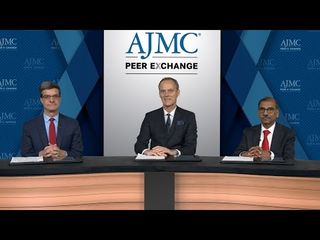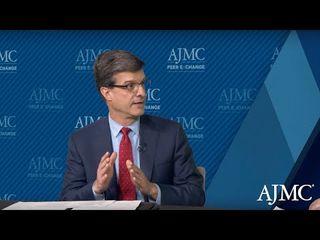
Hematology
Latest News
Latest Videos

More News
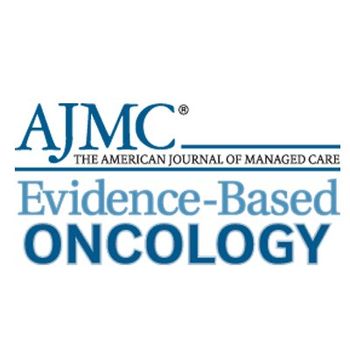
Anthony Fauci gave his insight on the coronavirus disease 2019 (COVID-19) for immunocompromised populations at ASH 2020, and leading organizations released fact sheets and recommendations.

Experts in the management of multiple myeloma discuss treatment selection for newly diagnosed patients, with consideration of the ENDURANCE trial and its shortcomings.

Key opinion leaders discuss the clinical significance of dosing flexibility for the CANDOR trial regimen, as studied in the EQUULEUS trial.
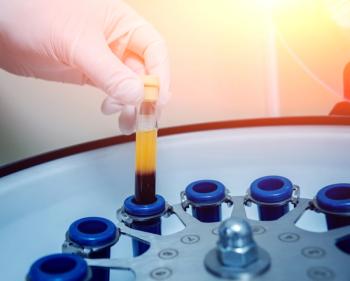
A comparison of 3 levels of SARS-CoV-2 antibodies in convalescent plasma shows that the 30-day death rate was lowest in the group receiving high-titer plasma.

An overview of the data from the CANDOR trial presented at the ASH (American Society of Hematology) 2020 annual meeting and discussion on how to manage various complications from the trial regimen.

Key opinion leaders consider how the approval of daratumumab in the upfront setting for patients with relapsed multiple myeloma has impacted treatment strategies.

Emerging research into natural killer cells has shown promise, but the findings are complicated by the heterogeneity of multiple myeloma (MM).

Age, renal disease, and suboptimal myeloma control were among the many factors identified in a recent study as increasing the risk of death from coronavirus disease 2019 (COVID-19) for patients being treated for multiple myeloma (MM).

Expert physicians provide insight into their strategy for treating biochemical relapse in patients with multiple myeloma.

A discussion on the importance of MRD (minimum residual disease) negativity in changing relapse patterns for patients with multiple myeloma.

Decades ago, companies refused to heat-treat their blood products, which resulted in pooled plasma, among others, enabling many viruses to be transmitted, noted Robert K. Massie Jr, PhD, MA, of the Society for Progress.

Key opinion leaders discuss why patients with multiple myeloma experience increasingly decreased response to therapy over time.
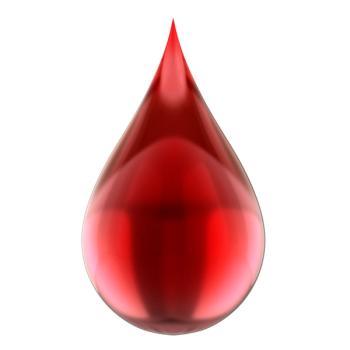
New research shows metabolic biomarkers could be meaningful tools for predicting treatment outcomes in patients, based on a comparison of biomarkers, clinical characteristics, and therapeutic efficacy.
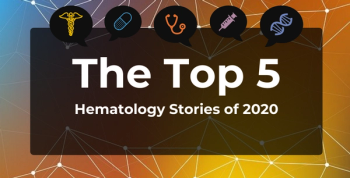
Gene-editing therapy in sickle cell disease and advances in multiple myeloma dominated hematology news in 2020.

Most patients with bone metastases or multiple myeloma (MM) who are hospitalized with skeletal-related events require lengthy and costly follow-up care after they are discharged.

Results presented earlier this month at ASH showed a 97% overall response rate, and progression-free survival had not been reached.
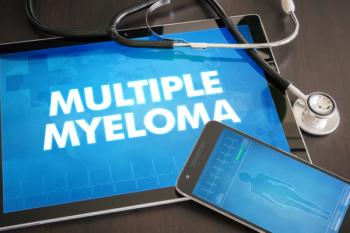
Physicians will soon have a more complex set of options when treating patients with multiple myeloma (MM), but the authors of a new review article argued clinicians will need to take a pragmatic approach.

A new meta-analysis finds high rates of efficacy and high rates of toxicity in multiple myeloma patients treated with B-cell maturation agent (BCMA)-targeted chimeric antigen receptor (CAR)- T cells.

The research raises the possibility that the type of therapy used can increase the risk of tumor lysis syndrome from low to moderate in men with multiple myeloma (MM).

The science around risk stratification in patients with smoldering multiple myeloma (SMM) has been evolving over the past 2 decades. A new study validates some, though not all, of the proposed biomarkers.
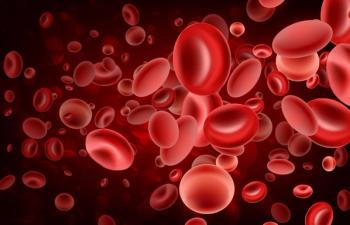
The United States is becoming older, more diverse, and more overweight, and these changes may influence future trends in certain hematological cancers.

Patients and health care providers evaluated the use of an electronic patient-reported outcome (ePRO) intervention for use in a clinic setting for patients with relapsed or refractory multiple myeloma (RRMM).

Severe aplastic anemia used to have few options and mortality was high, but a new class of drugs offers some hope.

New real-world data confirms that carfilzomib, lenalidomide, and dexamethasone (KRd) are a safe and effective option for patients with relapsed or refractory multiple myeloma.

The oral selective inhibitor of nuclear export could provide a new therapeutic avenue in daratumumab-naive patients with relapsing refractory multiple myeloma (RRMM).







